Omar Gabbar: The surgeon fighting to save the shattered Syrian health system
As his homeland enters a fifth year of civil war, UK-based surgeon Omar Gabbar is fighting to bring care where others dare not
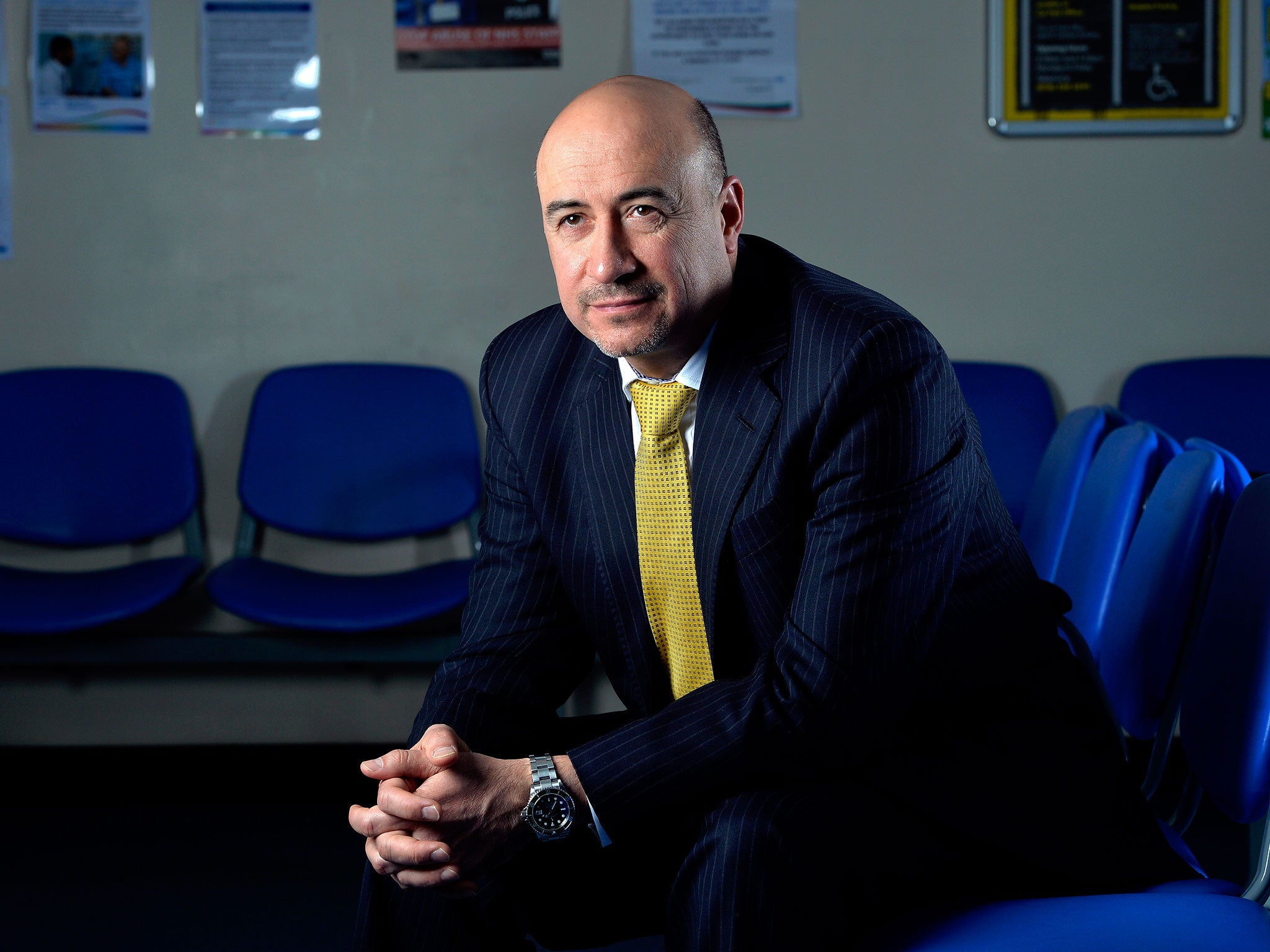
Your support helps us to tell the story
From reproductive rights to climate change to Big Tech, The Independent is on the ground when the story is developing. Whether it's investigating the financials of Elon Musk's pro-Trump PAC or producing our latest documentary, 'The A Word', which shines a light on the American women fighting for reproductive rights, we know how important it is to parse out the facts from the messaging.
At such a critical moment in US history, we need reporters on the ground. Your donation allows us to keep sending journalists to speak to both sides of the story.
The Independent is trusted by Americans across the entire political spectrum. And unlike many other quality news outlets, we choose not to lock Americans out of our reporting and analysis with paywalls. We believe quality journalism should be available to everyone, paid for by those who can afford it.
Your support makes all the difference.Some of Omar Gabbar’s fondest memories are of taking his children to spend summers near the eastern shores of the Mediterranean, where he grew up. His family would fly from their Midlands home as soon as school broke up, and Gabbar would join them for the final fortnight. “We swam in the pool every day and when the children got a bit older I’d never see them because they’d be out with their local friends every night,” the doctor says at Leicester Royal Infirmary, where he has worked for 15 years. “It was a prosperous place, people enjoyed life. It was beautiful.”
Gabbar, who is one of Britain’s leading spine surgeons, last made the journey with his family in summer 2010. They have been unable to return together since because their destination was Aleppo. Gabbar remembers his own carefree childhood in the city, skateboarding with his friends, and ducking in and out of the centuries-old Al-Madina Souq. Today, those miles of stores selling silks and spices have given way to ash and blood. Nearby, only piles of stone remain of the minaret of the Great Mosque. The tower had stood for almost 1,000 years.
The destruction at the heart of Syria’s greatest city has become a symbol for a national descent into ruin, and one of the worst humanitarian crises since the Second World War. As the estimated death toll climbs above 220,000, the ranks of the displaced on both sides of the country’s borders have grown to more than 10 million – half of all Syrians.
Gabbar, who is 47, is cheerful and passionate about his work, heritage and children. But when he thinks about his country, as it enters its fifth year of crisis, sadness and anger hijack his eyes. “Imagine if you take almost the whole population of Leicester,” he says, gesturing out of the window. “Now bury them all under ground. That is what has happened and it is heartbreaking to see this beautiful country, with all its history and culture, being annihilated – brought down to rubble. And for what?”
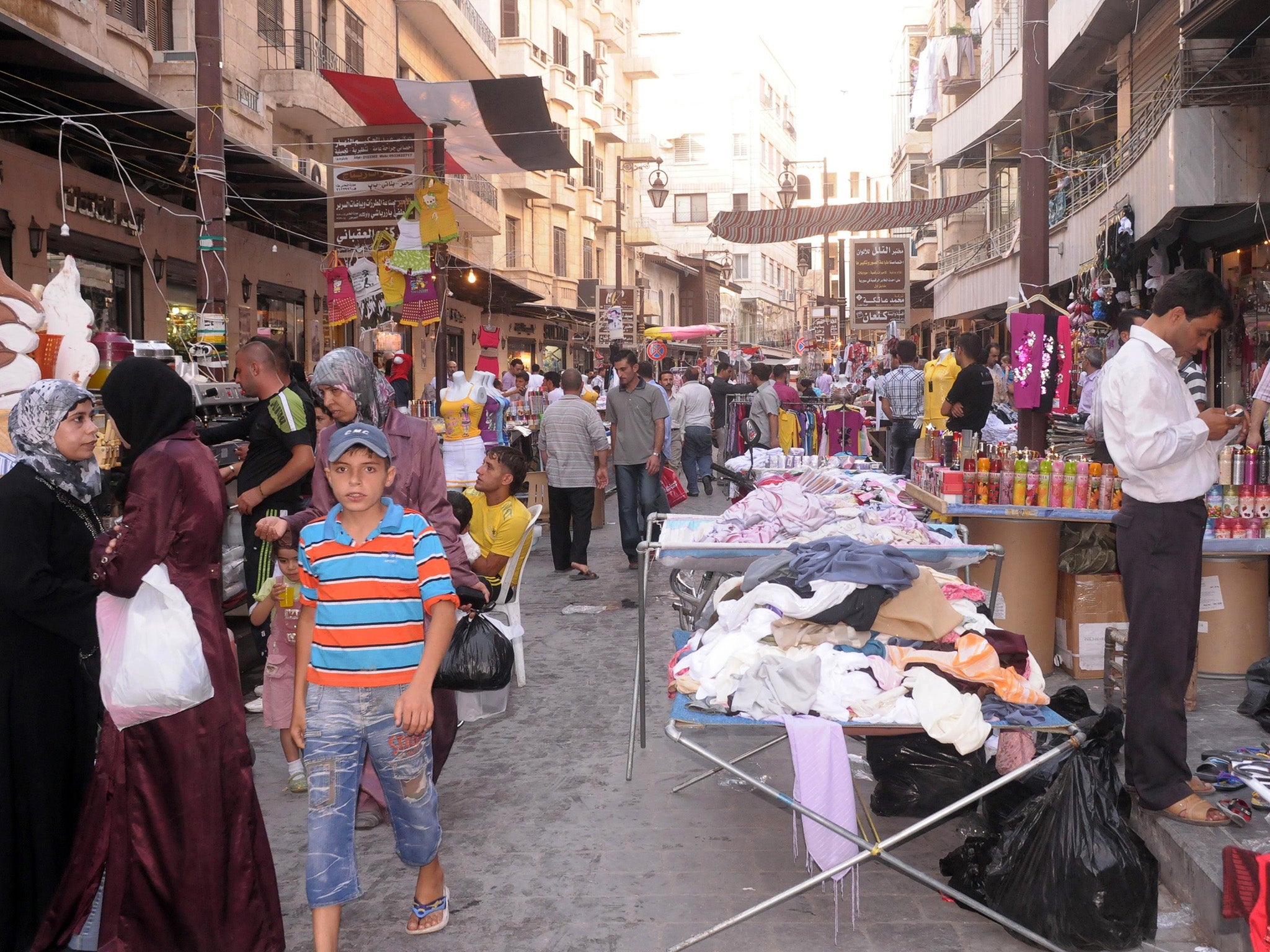
Many Syrians share Gabbar’s despair, but his profession, which brought him to Britain as a young doctor in 1996, has at least put him in a position to help. “As soon as I started seeing people being shot and deprived access to medical services, that’s where the doctor in me came in,” he says.
In 2011, months before the civil war engulfed Aleppo, Gabbar founded a charity with a group of his Syrian doctor friends. Hand in Hand for Syria now has a team of 200 people. They use unmatched knowledge, contacts – and bravery – to deliver aid and care inside a country that many international aid organisations have been forced to flee. They are also fighting to rescue a well-established healthcare system that Gabbar’s father, a former surgeon in Aleppo, helped to build, but which has come under attack as a military target.
Gabbar welcomes the media and aid attention given to the more accessible refugee camps outside the border, but for him the situation inside Syria is the most urgent. “It’s the photos of children who have lost their arms and legs that don’t reach the media,” he says, scrolling through such images on his phone, sent to him by his colleagues. “The number of dead is horrific but let’s numb our feelings for a moment, because their problems have finished. If you go to these rehab centres along the Syrian-Turkish border, you will find young people who’ve lost a limb or are paralysed, not by fighting but by being in the wrong place at the wrong time. I saw a 23-year-old man lying in a bed. He had been walking in the street and a sniper had targeted his spinal cord. His father looked me in the eye and begged me to do something, but I couldn’t. This was a 23-year-old – the future of Syria – paralysed and dying a slow death. And he’s not part of those statistics.”
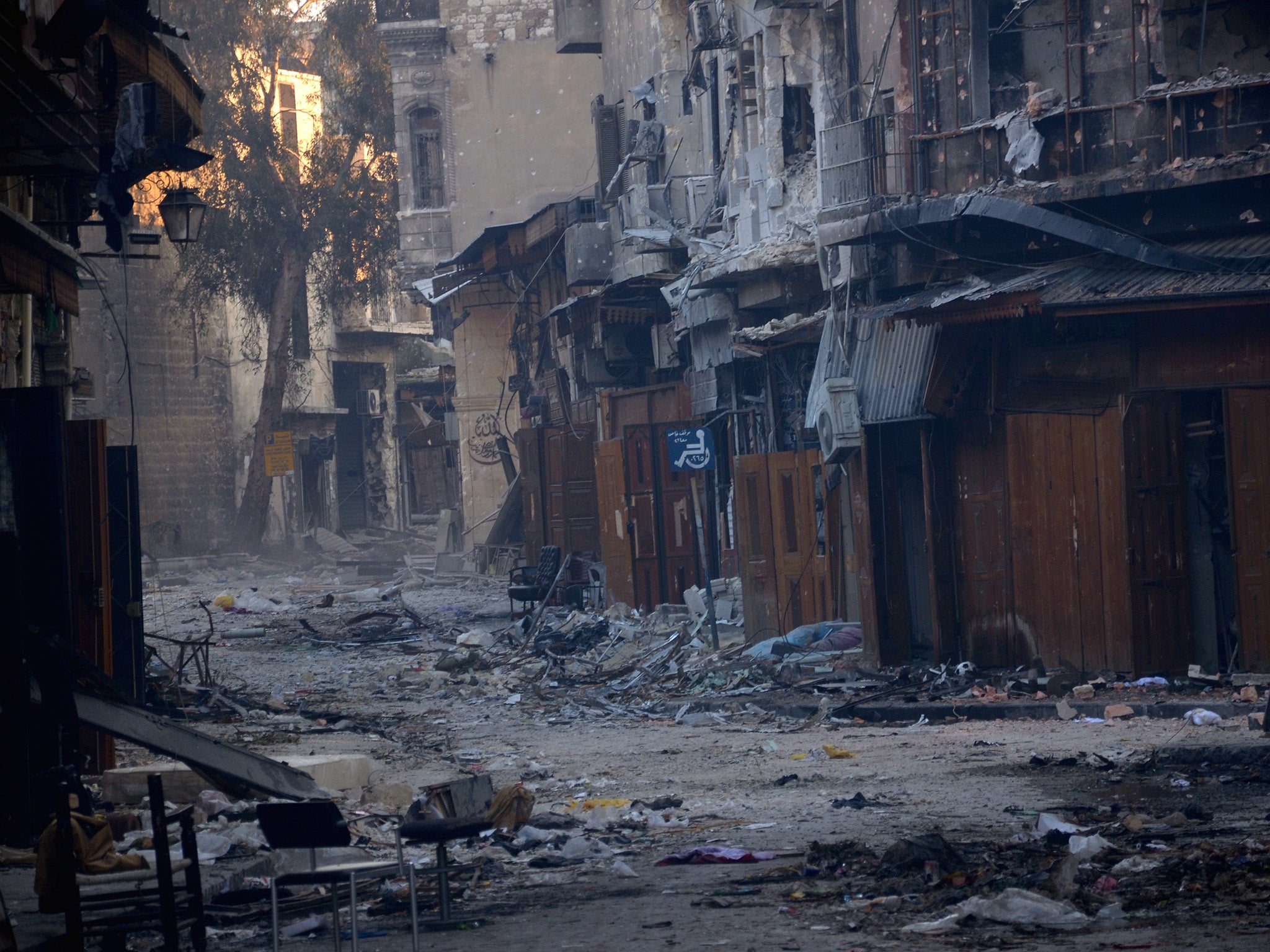
Gabbar did not need an anniversary to remind him how bad things are in Syria, but figures published last week support his depiction of a country in extremis. In just four years, 80 per cent of surviving Syrians have fallen into poverty. Life expectancy has dropped by 20 years, to 56. Unemployment has soared and infrastructure has crumbled. Satellite imagery reveals that 83 per cent of the lights in Syria have gone out. David Miliband, the former UK Foreign Secretary, described the country’s fall earlier this month as “a literal and metaphorical return to the Dark Ages”.
Change came in March 2011 with the hope still then synonymous with the Arab Spring. But Gabbar remembers at first being taken aback by the strength of feeling among pro-democracy protesters. “People asked me that February if this was going to happen in Syria and I said, ‘no way’. I thought the country was doing well. People had jobs, happy lives. But what I hadn’t realised was that society had changed since I lived there, and a new generation of educated young people wanted something more – freedom. A fuse had been lit and was working its way across the Middle East. Syria was waiting to explode.”
As those protests spread and threatened the power of President Bashar al-Assad, Gabbar was under no illusion about what would happen next. “I was a lad at secondary school in the 1980s and saw how uprisings get brutally suppressed,” he says. In 1982, Hafez al-Assad, the president from 1971 to 2000, commanded forces that killed tens of thousands of people during an uprising of the Muslim Brotherhood. “Although there had been a change at the top since then, the mentality was the same,” Gabbar says. “A monster had been awoken and once blood was shed on the streets, there was no going back.”
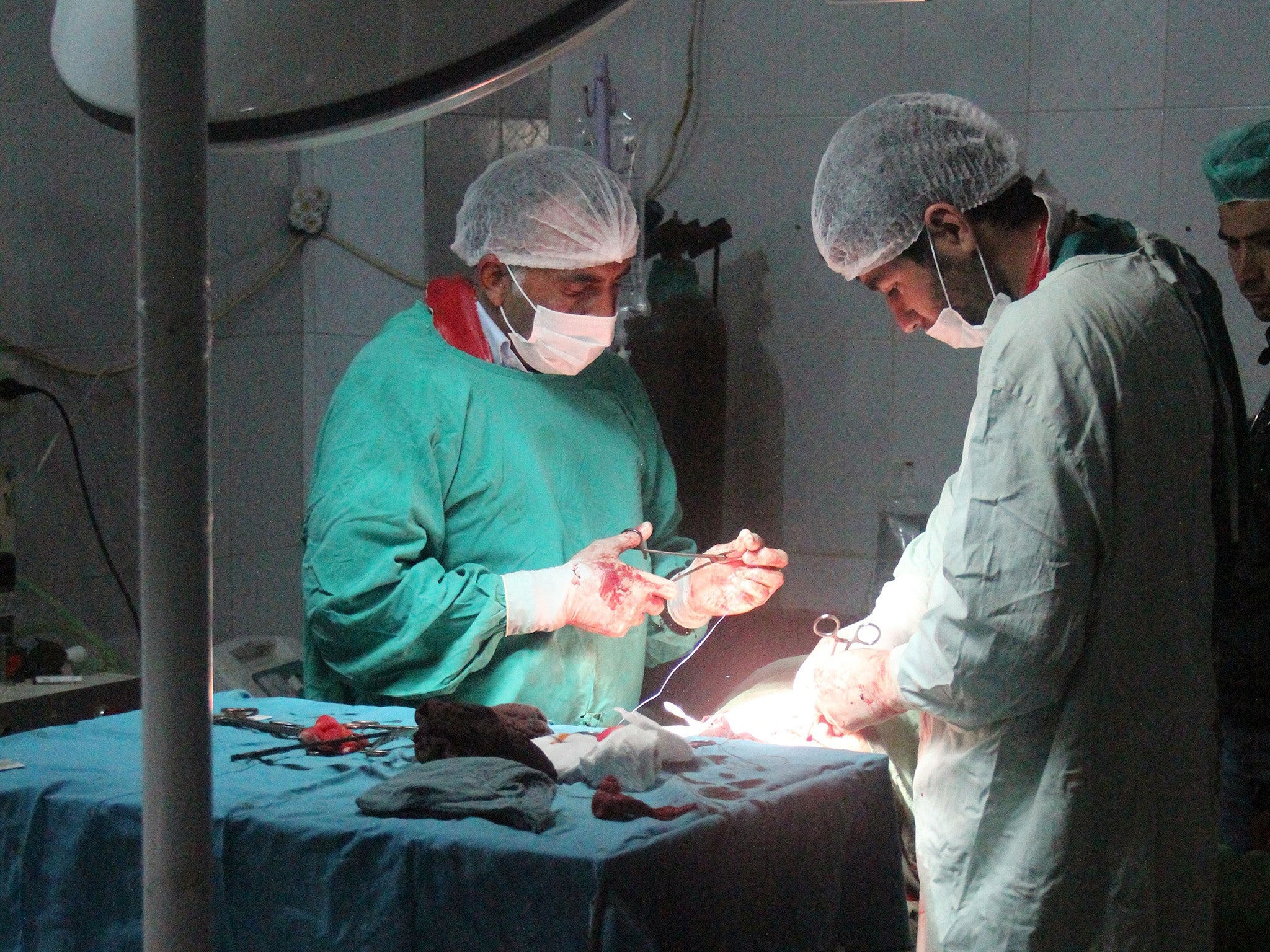
President Bashar al-Assad, Hafez’s son, is responsible for Syria’s current crisis. His barrel bomb-dropping military are fighting pro-democracy forces in a civil war made more complex and bloody by the role of sectarianism – and Isis. His people are the victims, and Gabbar hesitates to imagine what his own father would make of his country now. “He’d be even more heartbroken than me. He was a doctor in the ’80s, and dealt with some of the injuries in that uprising, at a risk to his own life.”
Abdul Kader was among the brightest of 11 children born to a farmer in eastern Syria. He excelled at school and eventually travelled to Britain to train to become a surgeon. In Kent, he met Omar’s British mother, a hospital secretary in Tunbridge Wells. They married and moved to Lincoln, where Omar was born, but the young couple then packed up a car and drove to Syria. They soon settled in Aleppo, where Kader became a professor of orthopaedics and head of department at the University of Aleppo. He was and remains a prominent figure among Syrian doctors.
As he grew up, Gabbar had wanted to be an architect, but he says that following his father into medicine brought them closer. At 26, he had recently married a dentist and had his own first child when his father died suddenly of a stroke, aged 54. “I felt very bitter but now I reflect on it, if my father were still alive, I don’t think I would have established what I have here,” says Omar, who was still living and working in Aleppo at the time. “I’d have taken over his private practice and now I’d probably be a refugee.”
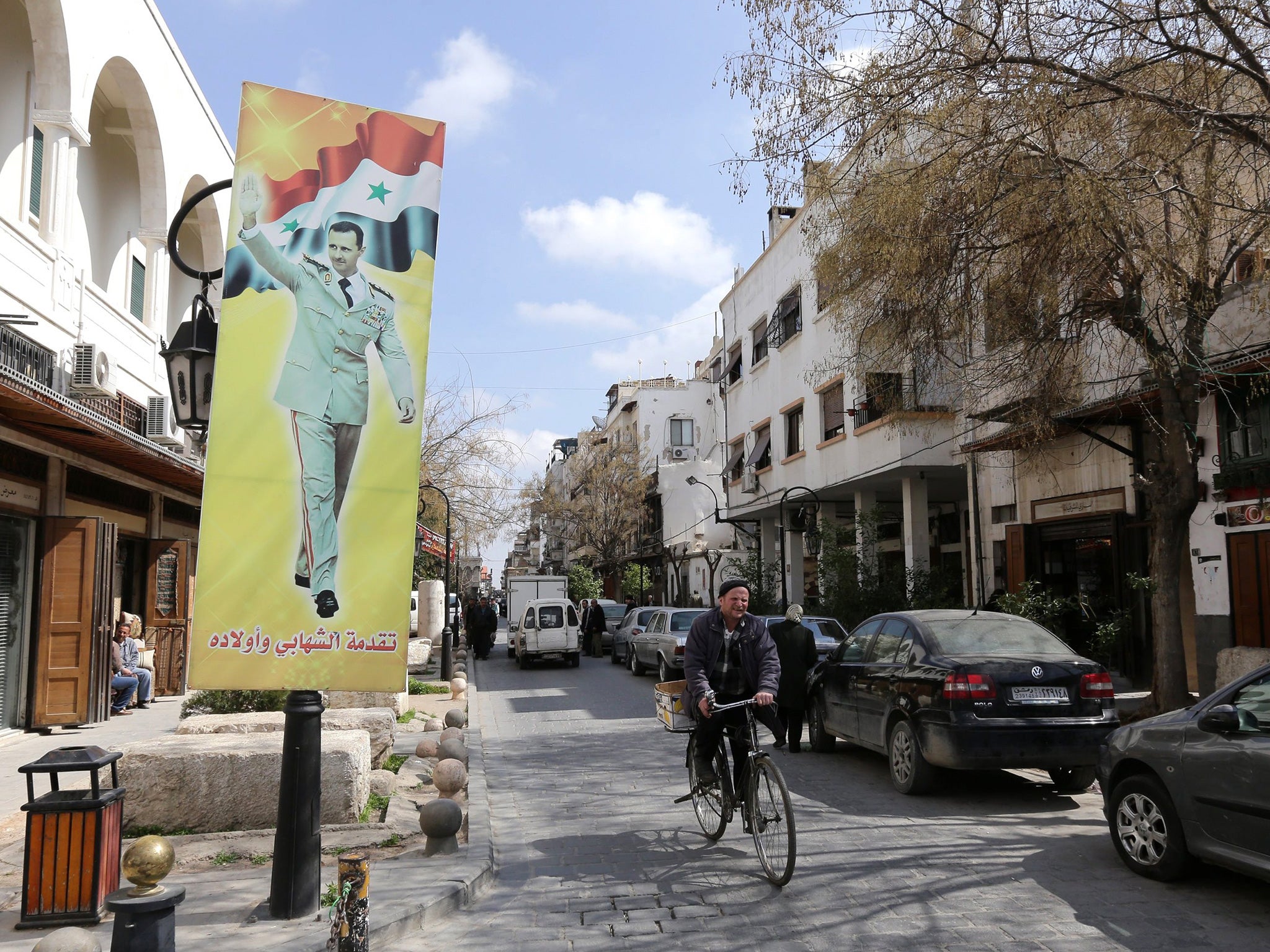
Or worse. Since the crisis began, highly-trained doctors and other healthcare professionals have fled Syria – or been targeted, mostly by forces loyal to Assad. According to a report released last week by Physicians for Human Rights, more than 600 medical personnel have died in attacks on hospitals, almost 140 of them as a result of torture or execution. They leave behind a desperate shortage of resources. In 2013, Channel 4 News filmed a 12-year-old boy who was working 12-hour days at a clinic in Aleppo, dressed in a white coat that was too big for him and stained with blood. “With time it has become easy,” he said. “Blood has become like water to me.”
Gabbar instead moved out of his father’s shadow, to continue his training in Bristol and then Leicester, eventually becoming a consultant spine surgeon. He has four children, now aged eight to 21, and has always maintained professional as well as personal ties to his first home. In 2010, he joined a trip with the Syrian British Medical Society to establish training programmes for doctors in the city of Homs. “It was such a success we’d already planned to go there again in April 2011, but of course it never happened,” he says. “And this has been one of the hardest things for me to see. A well-established healthcare system has disappeared. Now we’re having to work as a charity to convert buildings into field hospitals to provide even the most basic care. About a quarter of what we treat is conflict related, but the rest is just about the continuation of life.”
During one of Gabbar’s visits to Syria, a three-year-old girl was admitted to a clinic while he was there. She had been shot in the thigh. “I turned around and said, ‘guys, do you know how to deal with this?’ I offered to patch up the wound and minimise the scarring, and they were so happy to see someone who could show them how. Of the doctors who are left, many are still just trainees.” As far as Gabbar knows, the girl survived.
Even attempting to fill this growing gap in resources and skills, while facing the threat of bombs, kidnap or murder, does not come cheap. Britain has so far pledged £800m in aid to Syria, the latest £100m of which is supporting refugees outside the country. Inside, Hand in Hand for Syria now has £10m this year to support its work, much of it from donations, as well as from governments and other funds via aid agencies who are unable to operate in the same areas.
In his recent comments to Radio 4, David Miliband, who is now the head of the International Rescue Committee, also deplored the “fundamental failure” of the international response to the crisis, diplomatically and financially. Britain has been singled out for criticism for closing the door on Syrian refugees. (By the end of 2014, the Home Office had accepted just 143 asylum applications out of 6,654, while removing 50 refugees to their countries of first entry, many of which are overwhelmed.) As a humanitarian, Gabbar remains politically neutral. But it’s clear that he is no fan of Assad, and wishes that Britain would grant asylum to more of his people. He is gloomy about the relative scale of the crisis and the response, as well as the effect of “Syria fatigue” among observers and would-be donors. “The coverage is never enough for the magnitude of life lost,” he says, adding: “£10m sounds like a big number but when you’re a charity delivering aid to 70 per cent of the whole country it’s a drop in the ocean.”
Frequently, Gabbar’s mission to help, against all odds, gets personal. His most recent trip to Syria, last November, was to rescue his wife’s parents from Aleppo, and take them across the Lebanese border, often a dangerous journey. His father-in-law had become ill, and despite receiving the relatively protected care of a government hospital, the national drain of doctors and good medicine left him vulnerable. Gabbar’s own British mother had fled Aleppo in 2012 and is building a new life in Leicester. War has divided their extended family who remain in Syria, meanwhile, pitting cousins against each other and claiming lives.
As Syrians fight to survive or adapt to new lives in refugee camps or beyond, Gabbar laments the cost of war to a proud society and culture. “I thought losing my father was the worst thing that could happen to me, but no. Seeing the country I was brought up in being destroyed – that beautiful mosaic that held us together breaking up – is the saddest thing in my life,” he says. He returns to his phone. Among the images of dead children killed by barrel bombs, there are photos of the Al-Madina Souk he used to know. “I would walk along here to buy my spices, and visit friends who were traders,” he says, pointing. “I had a friend here who made headscarves. A lot of these shops were handed down between generations. Now they’re gone.”
Gabbar sees no resolution to the crisis while the warring sides remain armed and miles away from any diplomatic arena. In the meantime he is fighting a fire, and watching his country burn. He sees no hope for his family to return to their house in Aleppo, which he thinks is still standing, any summer soon. “My children really miss it, and have lost a link with their roots that I really wanted to maintain,” he says. “And they’re not the only ones. I don’t think any of us will ever see my country in the same way.”
To support Hand in Hand for Syria, visit handinhandforsyria.org.uk or call 020 8090 0463
Find various ways to donate, or help raise awareness of the crisis, at Help for Syria: helpforsyria.org.uk
Join our commenting forum
Join thought-provoking conversations, follow other Independent readers and see their replies
Comments